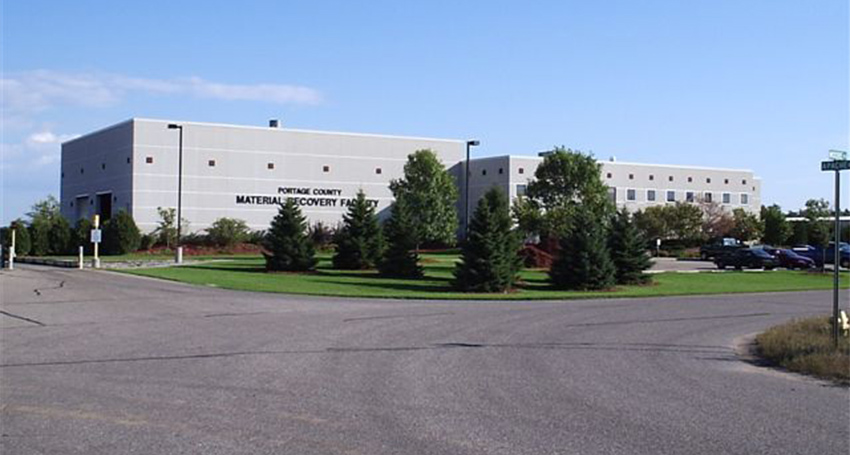Column: How do I dispose of items containing mercury?
By Amanda Haffele
Hydrargyrum, meaning water-silver, or its common name, Mercury, has been found in Egyptian tombs dating back to 1500 B.C.
The Greeks used it in ointments, and the Romans used it in cosmetics. Mercury is also one of the elements which have an alchemical symbol (alchemy is an ancient science or philosophy that thought certain metals could transform into gold, a universal cure to diseases, and indefinitely prolong life).
Fast forward to more recent uses by “mad hatters,” thermometers, mercurochrome (topical antiseptic), amalgam fillings, thermostats, and light bulbs.
Today, we know that this shiny element is hard to resist playing with, but resist we must, as the attractive element is highly toxic. It can find its way into the bloodstream through an open wound, inhalation, or ingestion.
Most notably, mercury can cause brain, liver, kidney, and nerve damage. It also poses a series of risks to the environment and wildlife. For these reasons, it’s important that we carefully and properly dispose of mercury.
Mercury can be found in three likely locations in the home or a business: thermostats, thermometers, and light bulbs.
Thermostats
Mercury can be found in tilt switches on most thermostats with manual (not electronic/digital) controls. If the thermostat does not contain mercury, remove and properly dispose of any batteries before recycling the thermostat with other electronics. If the thermostat has a mercury tilt switch, it can be brought to the Portage County Solid Waste Household Hazardous Waste Collection Program, which is held from March to November, for a minimum fee of $3, or taken to one of the following businesses to be recycled:
- Central Wisc. Winair, 3330 Plover Rd. Wisconsin Rapids, 715.424.4822
- Rw Woolsey Plumbing and Heating, Inc., N2852 County Rd QQ, Waupaca, 715.258.8237
Other drop-off locations for thermostats may be found at www.thermostat-recycle.org/zipsearch.
Thermometers
Mercury thermometers are made of glass and contain a silver, metallic grey, or black liquid. These thermometers are commonly used for fever, oven, meat, or candy temperature readings.
If broken, the mercury inside these thermometers (about .5 – 1.5 grams) can pose a real danger. Mercury thermometers can be disposed of at the Portage County Solid Waste facility year-round for a fee of $3. To avoid breakage, transport the thermometer in a rigid, sealed container like a small plastic food container.
Alcohol-containing thermometers typically contain red or blue non-toxic liquid and may be thrown in the trash. Digital thermometers may be placed in the trash. Infrared thermometers take instant readings, usually in the ear. These thermometers can go into the trash as well.
Fluorescent Light Bulbs
Compact fluorescent lights (CFLs) and fluorescent tubes contain mercury in a gas or powder form. There is much less mercury in light bulbs than in thermostats and thermometers, approximately 4 milligrams. However, this isn’t a reason to break a bulb and let the gas escape into the air.
Inhalation of mercury can be just as toxic as ingestion. In fact, the Environmental Protection Agency has very strict guidelines on cleaning up broken bulbs.
As a reminder, never use a vacuum to clean up broken bulbs, as this will spread the mercury. Instead, use thick tape and rigid cardboard and immediately turn off any forced air heating or cooling system, which will spread the vapors, and open windows.
Spent bulbs should be brought to the Portage County Solid Waste Transfer Facility in Plover for proper disposal. There is a small fee, $0.50 per bulb four feet or smaller, and $0.75 per bulb over four feet. Batteries Plus Bulbs, 5501 Hwy. 10 East in Stevens Point, also accepts these types of bulbs for a fee.
All other Mercury Containing Devices
Any other device that contains mercury or any liquid mercury you may have, can be properly disposed of at the Portage County Solid Waste Household Hazardous Waste Collection Program, held from March to November annually. Our vendor, Veolia Environmental Services, will properly dispose of it.
If you’re not sure if an item contains mercury or not, give our site coordinator a call and she’ll help you sort it out.
Amanda Haffele is the Portage County Solid Waste Director and she works at the Material Recovery Facility, 600 Moore Rd., in the Plover Industrial Park. It can be reached at 715.346.1931.


